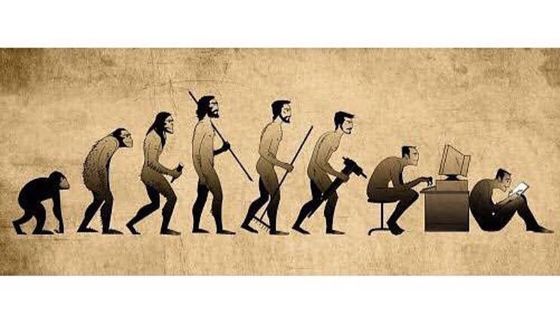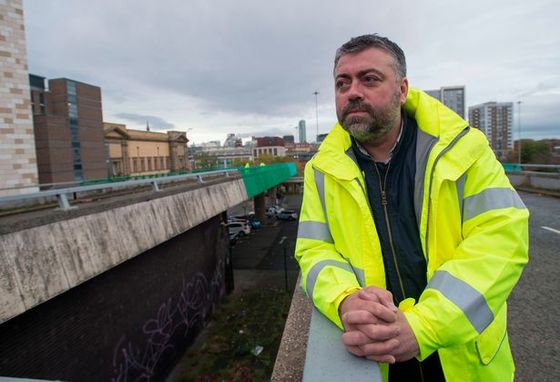James Noakes
Contact. Follow. Discuss.

B I O


EXPERIENCE
Work History
-
A sample of James' work history up to the present day
-
July 2019 - Present City Innovation Broker, Belfast City Council
Key contact point and broker for innovation development as part of the Smart Belfast programme including digital strand of the Belfast City Deal. Progressing funding opportunities including national and international approaches. Brokering new technologies and providers to address city challenges. Delivering a range of projects and proposals including development of the new smart district, cleantech ambitions and digital/communications infrastructure. Specific domain responsibilities on climate change, environment, food, energy and transport. Project lead on £30m advanced wireless programme business case. Programme Manager for Belfast 5G Innovation Region having secured £5.1m of funding.
We use, alongside other approaches, design thinking to deliver real change to how we deal with problems; embracing technology but ensuring people are put first, creating a smarter city that helps the people who live, work and play there.
I have specific responsibilities around wireless, environmental, energy and transport projects as well as helping with innovation brokerage and strategic insight.
-
May 2008 – November 2019 Assistant Mayor/City Councillor, Liverpool City CouncilList Item 1
Cabinet Member for Streetscene, Transport, Highways and Air Quality. Responsible for overseeing Liverpool’s public-facing city services including cleansing, environmental works and a £0.5bn highways programme. Operational budget responsibility of around £50m. Work includes encouraging investment in low carbon and renewable energy and developing a networked, digital ‘smart’ city. Digital lead and service transformation ranging from sensor deployment, transport and regeneration/place making through energy and eHealth. Designated lead on air quality and delivered municipal energy company approach.
The role includes national and international (EMEA/China/USA) representation and collaboration on behalf of the city; programme development, media work (TV, radio, print), representation to Government departments; public speaking and public/stakeholder consultation.
Recognised internationally on smart city approaches, regeneration and energy/sustainability engagement.
-
July 2016 – July 2019 Project Manager (Industrial Liaison), Low Carbon Eco Innovatory, University of LiverpoolList Item 2
• £5m programme assisting 250 innovative SMEs in Liverpool City Region
• Developing new and improved low carbon products and services through access to HE expertise and resource to improve local businesses and reduce CO2 emissions
• Recruitment of businesses, academics and students to programme
• Management of SME-specific eco innovation projects
• Determining the environmental performance analysis of 20 PhDs and over 40 small projects in a variety of industries
• Project Management/PRINCE2 internal development training
-
May 2014 – February 2016 Principal Environmental Consultant, Allan Environmental/Benchmark Holdings PLCList Item 3
• Life cycle assessment
• Energy and carbon assessments
• Environmental and energy advice to companies
• Environmental data analysis
• Bid and tender writing and commercialisation assistance
• AgriTech and environmental sensor development
• Energy management across PLC estate
• Low carbon and environmental technology support
• Low carbon sector mentoring
-
February 2004 – April 2014 Sustainability and Climate Change Manager, Wigan CouncilList Item 4
• Environmental Impact Assessment (EIA) and Strategic Environmental Assessment (SEA)
• Environmental management policies and actions (Environmental Management Systems)
• Energy and environmental technologies advice to all sectors and internally
• Sustainability appraisal (including for planning policies)
• Low carbon skills development
• Development of European low carbon business programme and liaison with pan-European partners
• Development and implementation of borough-wide climate change strategy and action plan including links regionally and nationally
• Development control/planning advice on sustainability, sustainable design and construction, and energy statements
• Carbon Reduction Commitment (CRC) – Government emissions trading scheme
• Greenhouse gas and carbon metrics development and reporting
• Waste advice including waste strategy, bulky waste and energy from waste
• Development of supply-chain carbon and sustainability analysis and assistance with life cycle analysis
• Energy masterplanning and scheme development of low carbon, renewable energy and energy efficiency projects
SAMPLE PROJECTS
-
SMART CITY PROJECTSList Item 1
Traffic analysis 2014 – use of IoT sensors to determine footfall in key locations in the city using data analytics to assist with transport and travel interventions, enabling better understanding for transport interventions and provided assistance for citizens who required better connectivity.
Air Quality sensors (2017 to 2019) – development of new air quality sensors to provide real time data to help analyse and respond to air pollution issues. This has also included ANPR cameras to determine vehicles entering and exiting the city. This is enabling the Council to respond to air quality issues in a targeted way with specific interventions earmarked for different locations.
Autonomous vehicle catalyst (2017)– a consortium of public and private sector partners to determine how autonomous vehicles could be utilised in the city. Using geotagging, augmented-reality, business case propositions and real time monitoring. This helped shape the approach to adopting autonomous vehicles. Presented by James at the TM Forum 2017 international showcase.
Smart Life Catalyst (2017)– working with a consortium of cities and businesses, led by Orange, to develop a platform for delivering smart city solutions as well as use cases. This used big data, data analytics, geotagging and customer journey mapping.
Electric Vehicle infrastructure and investment (2017 to 2019). Working with other officers, James devised the strategy for rolling out electric vehicles as part of Council fleet as well as providing on-street charging points for residents. This is to help shift residents and taxi fleet to electric vehicles.
5G testbed and trial for adult social care (2018 to 2019). Use of emerging technology to provide in home assistance for vulnerable people and create a data bank. Liverpool City Council is a key part of a consortium examining how 5G can help people remain independent.
Alexa for council services (2018)– the first major UK city to launch this. Colleagues in the digital team oversaw the technical detail whilst James commissioned and directed the use case and links with key services. They are now looking at the data analytics element of this.
Smart Cities Realised Mayoral Challenges as part of International Festival of Business 2018. James created a project to assist businesses working with Liverpool City Council and headed the judging panel– enabling social care, environment and infrastructure approaches to be deployed in a real-world setting.
In 2018 James was a co-creator of the Future State CoFoundery which brings together eight cities across the world to address smart city issues through developing new businesses where the market cannot deliver.
EcoInnovatory From 2016 to 2019 James was also working on a University-based project that seeks to drive innovation in environmental performance through developing new products, processes and services with some 60 companies. Responsibility for the delivery of the overall project in terms of recruiting businesses (SMEs) and academics/students as well as devising action plans for individual projects and analysing data. In addition to the direct work on their businesses, James acted as a broker to secure investment and additional support.
Belfast 5G Innovation Region (2023 0nwards) - use of 5G to drive economic development across key industries such as transport & logistics, digital media and advanced manufacturing.
-
DESIGN LED METHODOLOGIESList Item 2
James is well versed in using design-thinking to develop services and tackle urban issues. James been involved in directly addressing public sector challenges for local authorities since February 2004 to the present day giving him 16 years’ experience of working with design led methodologies. Some examples of design led projects:
2004 – 2014. A range of programmes delivering behaviour change in sustainable travel and climate change/carbon emissions. Identifying issues across the council, including cultural issues, work with stakeholders both internally and externally to design alternatives and protocols before developing programmes which were delivered to engage and affect change. Some innovative solutions James introduced have become commonplace across the UK such as installing pedestrian signs that give times rather than distances, for which he won a national award.
2006. “Service safari”– getting out into the field to experience it as a user. James carried out and developed the Living Streets Community Street Audit approach for a town high street engaging users and stakeholders to reimagine how the street could operate and how it could be made more attractive.
2010. Design Council’s approach of “discover, define, develop, deliver”. Worked with a number of organisations to use data to understand social issues. James brought together data from housing providers, police, council, youth work, skills organisations and economic regeneration. It succeeded in determining the key locations for antisocial behaviour and the causes. Partners were able to develop a response between agencies and deliver a short programme that saw a positive change in antisocial behaviour problems.
2012. Stakeholder mapping. To develop a successful lottery funding bid for community development James worked with others to map out relevant stakeholders identifying who needs and uses services the most and what gaps there were.
2012. Customer journey mapping. A technical lead on the rollout of over 2000 solar panels on social housing. Discussing with residents their challenges in their homes and understanding that provision of a home needed to take into account energy.
2013. “Act it out”. As part of an IDeA (LGA) approach to consider night time economy issues James used a process of helping physically experience the problems first hand.
2014 to present: Business model canvas. Mission model canvas. James has worked with numerous companies and projects to develop model canvasses either to improve business performance by focusing their approach (eg festival waste business) or move forward city issues (TM Forum City as a Platform).
2015. Personas– James identified and developed different IoT users on a scale of those dependent on public services to those focused on private sector led innovations to be put into a £10m UK IoT funding bid.
2016 to 2019. Ecoinnovatory. A design-led approach in assisting over 50 businesses address challenges. James started with leading companies through the issues they face and what they wish to achieve before defining the problem, discussing and testing ideas before bringing together a project and deploying the work. The businesses were all SMEs from a range of industries from manufacturing, consultancy, urban design, the food sector and many more.
2017. Customer journey mapping. Identifying the end-to-end user journey for citizens as part of a catalyst programme with Orange, ESRI and other cities.
2018. Instigated and led change in waste management on a £6.5m project seeing changes in bin collections for over 20,000 properties. Design-thinking to address the problems from the beginning. James altered the usual approach by trying to understand the needs and lifestyles of residents and where waste problems fit in. The problem was not just one of waste collection but lifestyles, neighbour issues, antisocial behaviour and poor landlords as well as serious infrastructure problems individual householders could not deal with alone. Ideas were discussed and a range of partners engaged to draw up plans. Residents encouraged to take a level of ownership. Currently prototyping the approach now and testing it out in a specific location before rolling it out across the city. Already seeing increase in recycling, reduction in vermin and more civic pride in the trial area.
-
PROJECT LIST
James has a track record of working on innovative projects in a range of areas. A list of specific projects is set out below.
SMART CITY
- Belfast 5G Innovation Region 2023 onwards
- Winner Digital Impact Council of the year 2019
- City of Liverpool Smart City Programme lead (2014 – 2019)
- City of Liverpool IoT application lead (2015)
- TM Forum Catalyst – Service Optimisation with Artificial Intelligence (2017)
- TM Forum Catalyst – Smart Life (Orange, ESRI, Infonova, BaseN)
- TM Forum Smart City Platform model (2017)
- Cyber UK presentation on Smart Cities and the role of cyber security (2017)
- Royal Institute Chartered Surveyors Summit smart city keynote (2017)
- TM Forum Yinchuan Smart City conference guest speaker
- Harvard Innovation Accelerator (2016, 2018)
- Smart Algiers panel chair and advisor (2018)
- World Artificial Intelligence Conference (Shanghai, 2018) special guest presenter
- 5G Testbed and Trial for social services political lead (2018)
- Liverpool Smart City Strategy (2018)
- Cities Today 20:20 member representative (2018 onwards)
- EC Link (European – China eco cities) assistance on environmental improvements in smart cities
ENVIRONMENTAL
• Lifecycle Analysis/Environmental Assessment support and environmental monitoring for 20 PhD projects and 40+ company-specific projects in a range of industries (2016 onwards)
• Strategic Environmental Assessment /Sustainability Appraisal of Wigan’s Adopted Core Strategy including Examination in Public. Adopted 2013
• Wigan Local Flood Risk Management Plan including Strategic Environmental Assessment 2014
• Strategic Environmental Assessment of Wigan’s Allocations Plan 2014
• Environmental Impact Assessment - Provision of screening and scoping opinions as well as analysis of a range of developments including housing developments, biomass centre, employment developments and low carbon infrastructure projects. 2011 - 2014 (Considering ecological, health, socio-economic and other environmental issues)
• Advice on screening and scoping for infrastructure EIA projects 2012 – 2014
• Strategic Environmental Assessment /Sustainability Appraisal of Sustainable Travel Supplementary Planning Document 2007
CLIMATE CHANGE/LOW CARBON/ENERGY/ENERGY MANAGEMENT
• Establishment of Liverpool ‘LECCY’ energy retail company (2017)
• ESOS and EMS delivery inc ISO14001 (2010 - 2016)
• Benchmark Holdings energy management and analysis (2014 onwards)
• “Chicken shed of the future” carbon and environmental management (2014)
• Guardian newspaper expert panel: Councils and local energy (2014)
• Wigan Borough Climate Change Strategy and Action Plan (2011 – 2014)
• Greater Manchester Climate Change Strategy local lead (2011 – 2014)
• Localised Climate Change Adaptation Planning Toolkit project (2013 – 2014)
• Carbon Metrics lead officer Wigan and Greater Manchester (2013 – 2014 )
• Wigan Council Greenhouse Gas Reporting Lead (2011 – 2014)
• Carbon Reduction Commitment officer (2011 – 2014)
• Carbon Management Programme and Environmental Management System (2006 – 2014)
• dCarbon supply chain carbon emissions programme (2012)
• Climate Change, Social Justice and Vulnerability project supporting University of Manchester (2011)
• SCORCHIO – Urban Heat Island Effect research project advisor supporting University of Manchester (2008 – 2010)
• North West Low Carbon Supply Chain Support Project (2011)
• Wigan heat network programme (2010 – 2013)
• Wigan & Leigh Homes solar panel programme (2010)
• Climate Change Adaptation Resource Pack for Capital Assets (2010)
• Greater Manchester energy efficiency steering group (2009 onwards)
• North West England Transport and Climate Change Chair including project commissioner (2008 – 2010)
SUSTAINABLE TRANSPORT AND TRAVEL
• Highway Capital Programme for Liverpool of approx. £0.5bn (2018/2019)
• Liverpool Cycling Infrastructure programme (2018/2019)
• Liverpool Air Quality strategy (2018/2019)
• Breathe Liverpool lead – air quality programme for city including part of National Air Quality summit (2017-2019)
• Board Member ACT TravelWise (2008-2010)
• Travel Plans Supplementary Planning Document (2007)
• Metropolitan level travel plans assessment (2004-2007)
• North West England Transport and Climate Change Analysis (2008 – 2010)
• Wigan on-street signage project (2006)
• Wigan Walkability audits (2004)
• Wigan Council Travel Plan (2004 – 2007)
• Travel Options Planning Service (2001)
OTHER
• Liverpool waste cleansing contract oversight and delivery (2018/2019)
• £1m - £6.5m Alleyway investment programme (2018/2019)
• Board member of Liverpool Streetscene Services Ltd delivering £28m+ contract for city services (2018/2019)







